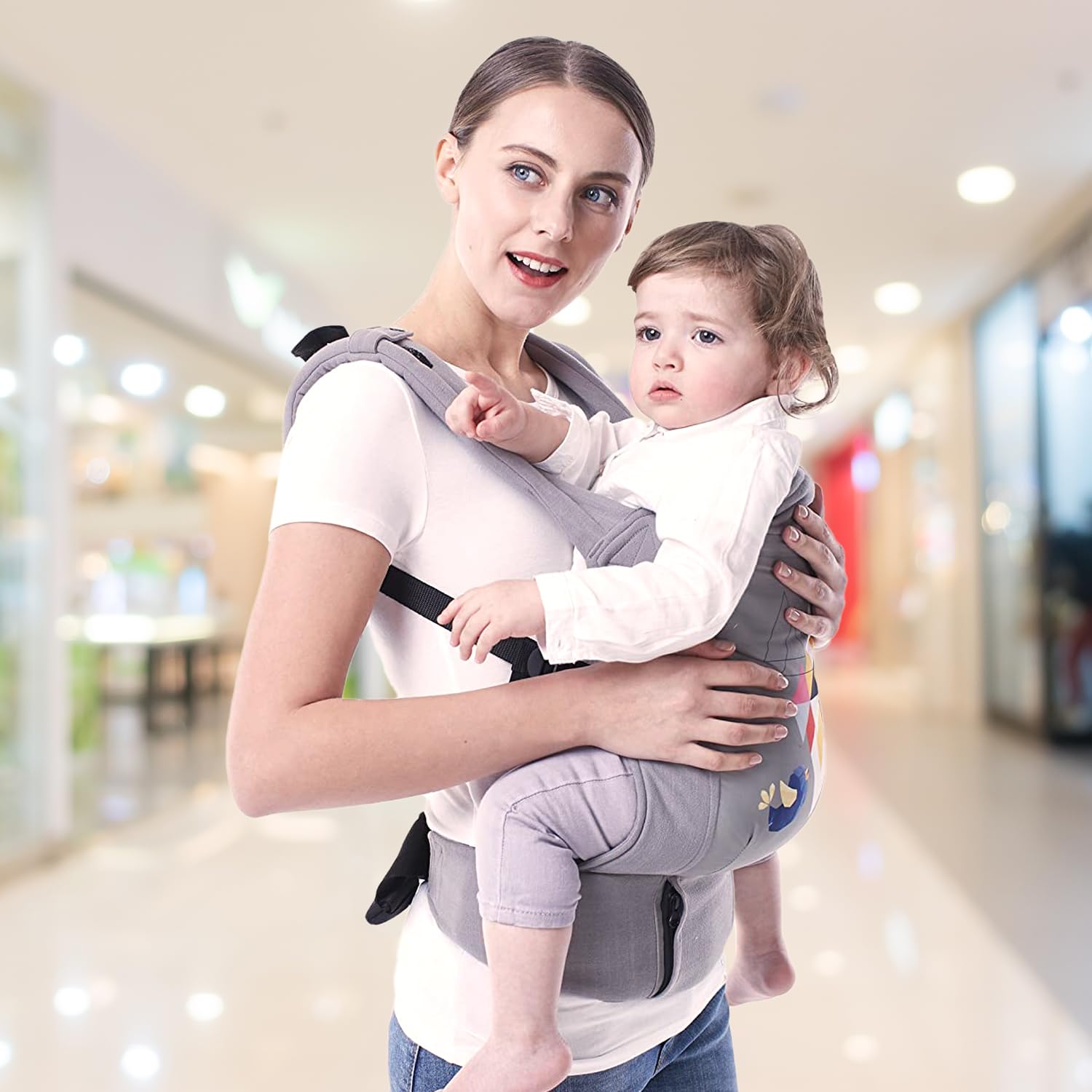When it comes to baby care, one of the most important decisions a parent makes is selecting the best baby carrier. A well-chosen carrier offers comfort and safety for both parent and child, promoting healthy bonding and providing hands-free convenience for daily tasks. Shop Baby Products With a range of options available, how can you choose the best baby carrier for your needs? In this article, we’ll walk you through the key factors to consider, offer expert advice, and guide you in making an informed decision. Plus, find recommendations for top-rated baby carriers and helpful tips for usage.
Comfort: A Top Priority for Parents and Babies
Comfort is paramount when selecting a baby carrier. A carrier that is too tight or doesn’t distribute the weight evenly can cause strain on your body, while an uncomfortable position for your baby can lead to fussiness and poor posture. To ensure comfort:
- Look for adjustable straps: Ensure that both shoulder straps and the waist belt are adjustable, providing a customizable fit to suit your body size.
- Choose breathable materials: Soft, breathable fabrics like cotton or mesh can help regulate temperature, keeping both you and your baby comfortable.
- Opt for ergonomic design: An ergonomic carrier ensures that your baby’s hips, spine, and legs are properly supported, which is crucial for their development.
By choosing a carrier designed with comfort in mind, you can enjoy carrying your baby for extended periods without discomfort. Shop Baby Products from Qubix Dubai to explore a variety of comfortable options.
Safety Considerations: Always Prioritize Your Baby’s Well-being
When selecting a baby carrier, safety should be your top concern. An unsafe or poorly designed carrier could jeopardize your baby’s safety, so it’s essential to prioritize key safety features:
- Secure fastening systems: Ensure that the carrier has secure buckles, snaps, or Velcro to prevent accidental openings or loosening.
- Proper seat position: Make sure your baby’s position allows their airway to remain clear and their head and neck supported, especially for newborns.
- Stability and sturdiness: Choose a carrier that provides proper weight distribution to avoid strain on your back and prevent injuries.
As you shop for a baby carrier, make sure to research brands that prioritize safety features and follow proper safety guidelines. For the best options, check out Qubix Dubai, where you can find products that meet high safety standards.
Types of Baby Carriers to Consider
There are several types of baby carriers, each with its own advantages. It’s important to consider which type works best for your lifestyle:
- Front-facing carriers: These are the most popular type and allow parents to carry their baby in front. They are ideal for babies who are old enough to support their head and neck.
- Back carriers: Back carriers are great for parents who want to carry their baby on their back. They provide excellent support and are perfect for long hikes or outings.
- Wraps and slings: These carriers are made from fabric and are often considered the most flexible. They allow parents to carry babies in multiple positions, including on the front, side, or back.
Each type offers different benefits, so think about your daily routine, the age of your baby, and your comfort level when selecting the best carrier.
People Also Ask:
-
What is the most comfortable baby carrier for the newborn?
For newborns, look for a carrier that offers full head and neck support, such as a soft, structured carrier with an adjustable seat. Many wraps and slings are great for newborns too. -
Can I use a baby carrier for hiking?
Yes, many baby carriers are designed for hiking, offering extra support, comfort, and stability. Look for a back carrier that features a sturdy frame and padding for long treks. -
How do I ensure my baby is safe in a carrier?
Always follow the manufacturer’s safety guidelines and ensure your baby’s head, neck, and airways are supported. Check that the carrier is securely fastened and that your baby’s hips and spine are well supported. -
When should I stop using a baby carrier?
This varies by the carrier and your baby’s size and development. Some carriers can be used until your child weighs up to 40 pounds, while others may be suitable for shorter durations.
Caring for Your Baby Carrier
Proper maintenance of your baby carrier is important to keep it in top condition. Regular cleaning and inspecting the carrier for wear and tear ensures that it remains safe and functional. Here are some maintenance tips:
- Follow the manufacturer’s cleaning instructions to prevent damage.
- Check for frayed straps or weak buckles regularly.
- Store the carrier in a cool, dry place to avoid mildew or mold growth.
Conclusion: Choosing the Right Baby Carrier for You
Selecting the best baby carrier is a personal decision based on your comfort, safety preferences, and lifestyle. By taking the time to research your options, considering the comfort and safety features, and maintaining your carrier properly, you can create a positive experience for both you and your baby. Whether you’re looking for a front-facing carrier or a back carrier for hiking, Qubix Dubai offers a variety of high-quality options to suit your needs. For expert advice, reviews, and the latest products,
Follow us on Facebook to stay updated.
With careful consideration and the right carrier, you and your baby will enjoy a comfortable and safe bonding experience. Don’t forget to shop for the best baby products today!










